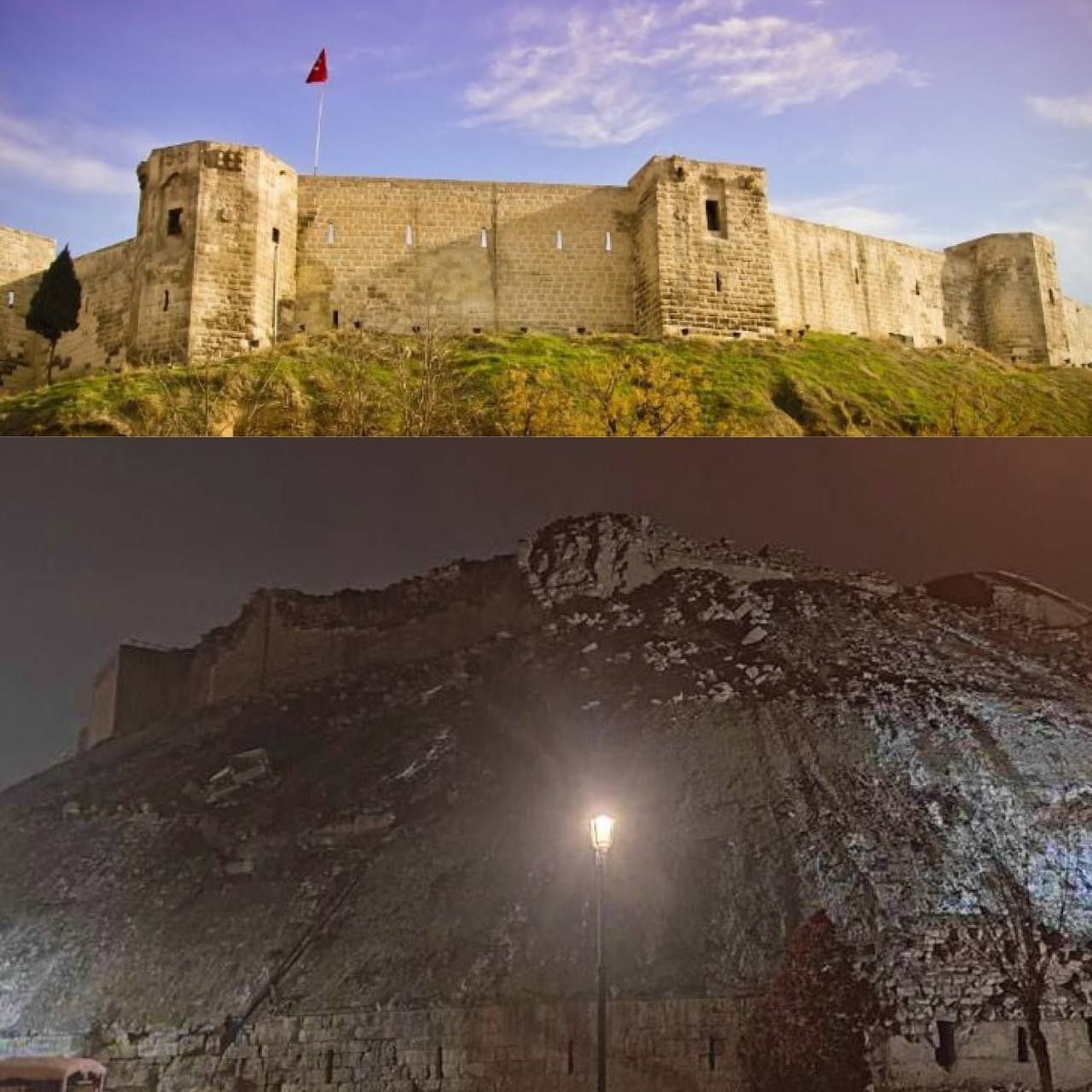In the wee hours of February 6, the people of Turkey and Syria woke up to a bloody earthquake that rattled their countries, claimed more than a thousand lives, and is being touted as the worst disaster to hit the region since 1999.
A powerful 7.8 magnitude earthquake struck southern Turkey and northern Syria early today, killing more than 1,200 people (at the time of writing this report) and wreaking havoc in the region. As rescue teams search for survivors through mounds of rubble, the death toll is being revised every few hours.
The earthquake, which had its epicenter close to the city of Gaziantep in the southeast of Turkey, lies just 90 kilometers from Syria. It left a massive trail of devastation in both countries, with tremors being felt as far as Cairo in Egypt. The earthquake also shook parts of Lebanon and triggered a tsunami alert in Italy.
The Turkish Interior Minister said that over ten cities—Gaziantep, Kahramanmaras, Hatay, Osmaniye, Adiyaman, Malatya, Sanliurfa, Adana, Diyarbakir, and Kilis—were impacted. A BBC Turkish correspondent in Diyarbakir reported that a city shopping mall collapsed due to the powerful tremors.
Not just that, a historic landmark site in southern Turkey, Gaziantep castle, which was built in the 2nd and 3rd centuries and has been revered by the people, was also damaged.
According to Turkish officials, there was a second tremor in the region just minutes after the first earthquake struck the country. In Syria, rebel-held territories were the worst hit.

The devastation caused by the earthquake has led to a massive collapse in Turkey’s communication infrastructure. However, SpaceX owner and US Billionaire Elon Musk expressed his willingness to help Turkey by sending his Starlink satellites to the country reeling under large-scale devastation.
Musk has also sent these satellites to war-torn Ukraine.
The only problem in sending Starlink to Turkey was that it has not been approved yet. When the Assistant Professor of Radiology, Mehmet Emin Adin, asked whether the billionaire would like to help Turkey, Musk said in a tweet: “Starlink is not approved by the Turkish government yet. SpaceX can send it as soon as approved.”
The level of destruction caused by the earthquake in Turkey makes it look like a war zone. This is utterly heartbreaking. Pray for Turkey and especially for the people trapped under the rubble. pic.twitter.com/PeqPXoNKlF
— KC (@kci2013) February 6, 2023
In #Sanliurfa the moment a building collapsed recorded by mobile phone hours after 7.8 #earthquake hits Turkey. #deprem pic.twitter.com/YDc8DH9lbn
— JournoTurk (@journoturk) February 6, 2023
Turkey is located in one of the planet’s seismically active regions, which means that this country is never immune to a calamity. The earthquake that has rattled Turkey and shaken its foundations has served as a brutal reminder of the omnipresent threat posed by its geological location.
The director of the Kandilli Observatory and Earthquake Research Institute, Dr. Haluk Özener, told BBC in Turkish, “We are facing the biggest earthquake we have seen in 24 years in this region. So far, 100 aftershocks have occurred.
About 53 of them are over 4 [on the Richter scale]. Seven of them were over five. We can say that these earthquakes will continue in the coming days.”
Two earthquakes, the first one is 7,8 magnitude the second one is 7,6 according to officials, hit #Türkiye today in 9 hours and many aftershock.
Death-2000+
Injured-8000+#PrayForTurkey #Syria #earthquake #turkey #deprem pic.twitter.com/mVE1hk5nU5— Chaudhary Parvez (@ChaudharyParvez) February 6, 2023
The disaster, the horrors of which are being reported every few minutes, has also brought back memories from the earthquake that struck the country in 1999 and killed more than 17,000 people.

The Earthquake Turkey Took Years To Recover From
On August 17, 1999, a devastating earthquake struck near the city of İzmit in northwestern Turkey, killing thousands of people and destroying large parts of mid-size cities and towns near the epicenter.
The initial shock lasted less than a minute (almost 35 to 45 seconds) and registered a magnitude of 7.4, below the threshold of the 7.8 magnitudes that struck Turkey and Syria on February 6, 2023. Two moderate aftershocks occurred close to the epicenter two days after the first shock.
The Izmit earthquake catastrophe killed a whopping 17,000 people and rendered 500,000 homeless. Several administrative buildings, including the Turkish Navy’s headquarters in Gölcük, collapsed or sustained significant damage.
The Tüpraş oil refinery suffered a catastrophic fire triggered by the earthquake. The leaking naphtha from a holding tank caused the fire at a state-owned tank farm. The damage to the water infrastructure made it impossible to extinguish the fire. It took five days to bring the fire under control.
Istanbul was also severely damaged by the earthquake, particularly the Avclar neighborhood in the western part of the city, which was around 70 kilometers from the epicenter. Despite the distance, it killed roughly 1,000 people.
The projected direct cost of losses caused by the Izmit earthquake was pegged at $6.5 billion. However, it was also reported later that collateral expenses could be as high as $20 billion.
According to a report published in 2010 by the Grand National Assembly of Turkey’s research division, there were 18,373 casualties.
The same report revealed that there were 48,901 injuries, 505 permanent injuries, 96,796 homes that were severely damaged or destroyed, 15,939 businesses that were similarly affected, 107,315 homes that were moderately damaged, 16,316 businesses that were moderately damaged, and 113,382 homes that were slightly damaged.
This earthquake caused devastation on a scale that the country found hard to recover from for several years. A massive international response was mounted to assist in digging for survivors and to help save the lives of the wounded.
As casualties continue to mount in the latest earthquake that shook Turkey today, it is a grim reminder that despite its rapid gains in power and prestige, the country is not invincible in the face of natural disasters.
- Contact the author at sakshi.tiwari9555 (at) gmail.com
- Follow EurAsian Times on Google News




